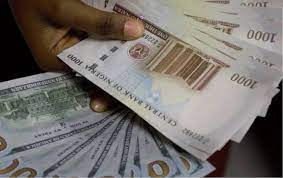Official statistics released by the authorities have shown that Nigeria’s inflation rate rose in November as food prices continued climbing following border closures.
Blueprint weekend had already predicted that the average of change in the prices of goods and services would rise significantly, following survey by analysts.
Consumer prices rose 11.9 per cent from a year earlier compared with 11.6 per cent in October, the Abuja-based National Bureau of Statistics said in a report published Tuesday on its website. The median of three economists’ estimates in a Bloomberg survey was 11.8 per cent.
Nigeria’s central bank held its benchmark rate at 13.5 per cent for a fourth straight meeting in November, saying the impact of the country’s borders closures — designed to stem smuggling — on prices will be “reactionary and temporary.”
But the International Monetary Fund (IMF) had expressed hope that central banks would loosen the hose to accommodate rising price last last month.
Food inflation quickened to 14.5 per cent from 14.1 per cent in October. The price of imported rice, Nigeria’s preferred staple, has risen since August, after President Muhammadu Buhari ordered the border closures.
The International Monetary Fund warned last month Nigeria will experience further inflationary pressures due to excess liquidity in the banking system, driven by negative real yields on short-term government bonds.
Analysts had also earlier warned that Nigeria may see inflationary pressures rising from excess liquidity in the banking system due to negative real yield on short-term government debts, International Monetary Fund said.
Yields on Nigeria’s one-year Treasury bills is at lowest since January 2016, while interest on three-month debt dropped to 6.5 per cent as local funds pile into the debt after the central bank restricted their access to its higher-yielding securities. Six months government paper fell as much 19.7 per cent, most in about four years.
“In view of inflationary pressures —including from fourth quarter budget implementation and rising minimum wages— and with inflation at 15-month high, a tight monetary policy remains necessary,” Amine Mati, IMF Nigeria’s chief said in emailed response to Bloomberg questions. While low yield could spur bank lending, higher imports demand will increase pressures on exchange rate and international reserves, he said.
Central bank Governor Godwin Emefiele said during November monetary policy review that inflationary pressure was due in part to seasonal end-of-the year uptick in prices and border closure that has led to “food supply shock which will adjust over the medium-to-long term as the economy increase investments in food production.”
The IMF supports Nigeria’s efforts to boost revenue by increasing value-added tax to 7.5 per cent.
“Additional measures, including higher excises, removal of exemptions, would be needed to help increase revenue to the 15 per cent of GDP target the authorities set for themselves and necessary to meet the country’s large spending needs,” Mati said.



